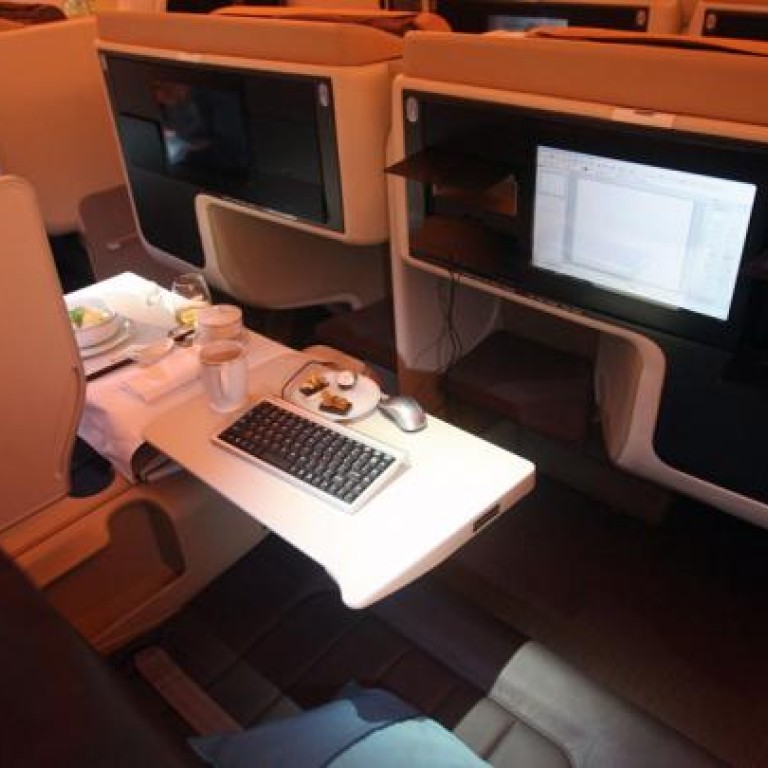
A plan for business travellers to fly economy. But will it take off?
Chad Lykins says firms can donate the savings to charity, to do some good
Want to stump your friends at the next party? Ask them this: Where is the most expensive office space in the world?
Hong Kong? New York? London? The answer is none of the above. Or actually, above all of them. You'll have to look up for the answer - it's the extra foot you get when you fly business class.
On a typical flight from Hong Kong to Tokyo, you will pay HK$16,600 more than economy class for the privilege of renting that extra foot of space for five hours or so. The price of fuel, maintenance and other incidentals is already covered by the economy airfare.
Considered annually, the extra foot of office space in business class costs over HK$2 million per month, compared to HK$138 per square foot in Two IFC.
Why do corporations still fly their people business class? There are a couple of reasons. First, most businesses do not do it that often, and when they do, they perceive it to be a necessity. Second, they often do it as part of an effort to take better care of travel-weary employees.
That is why most large companies have travel policies that permit business class on flights over a certain length. They are generally good policies.
However, not all employees are the same. Some would be happy to fly economy class every once in a while - if they felt like it produced some good.
So, here I present the fly-coach hypothesis, which states that, given the option to donate the savings to a charity they believe in, some employees would voluntarily choose to fly economy some of the time.
It is simple. The corporate travel officer quotes the employee two fares and says that if she chooses the lower one, the company will donate the difference to charity. On a Hong Kong to Tokyo trip, that would be a big enough donation for Room to Read to put a Cambodian girl through school for eight years, for example.
Why would a company do this? Business class travel is a sunk cost. You cannot cut it any further without having massive pushback. Employees are not willing to endure extra discomfort for the good of the firm. But they might endure a bit of discomfort for the good of a child who needs food, medicine or education.
By flying coach and donating the savings, companies get more for that investment. They engage their employees in a meaningful way. They increase their corporate philanthropy. They align their operations with their core values. And all of this without an increase in spending.
If 100 companies did this for 10 flights in a month, they would raise HK$16.6 million.
The employees I have spoken to have all said they want this option, even if they only choose it once a year. The question is now: which company is going to lead by running an experiment in one of its business units?
